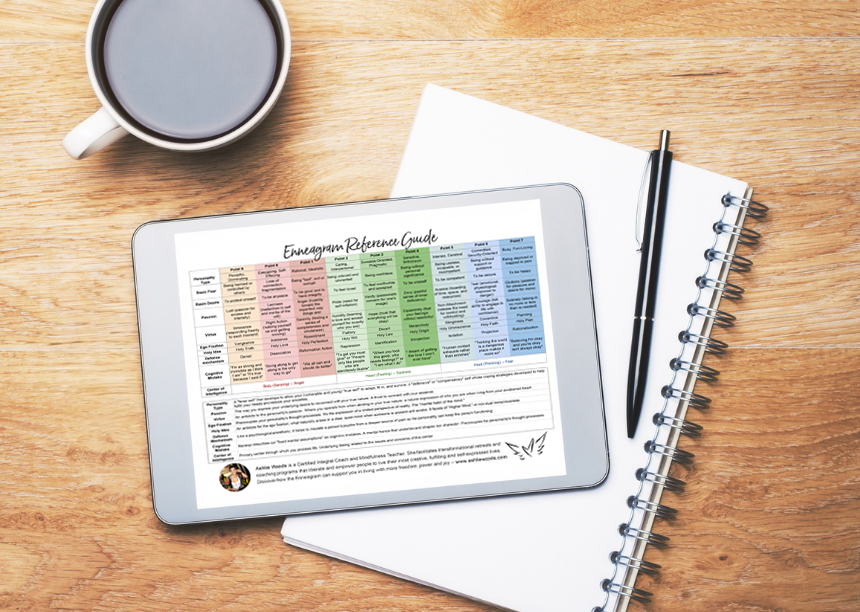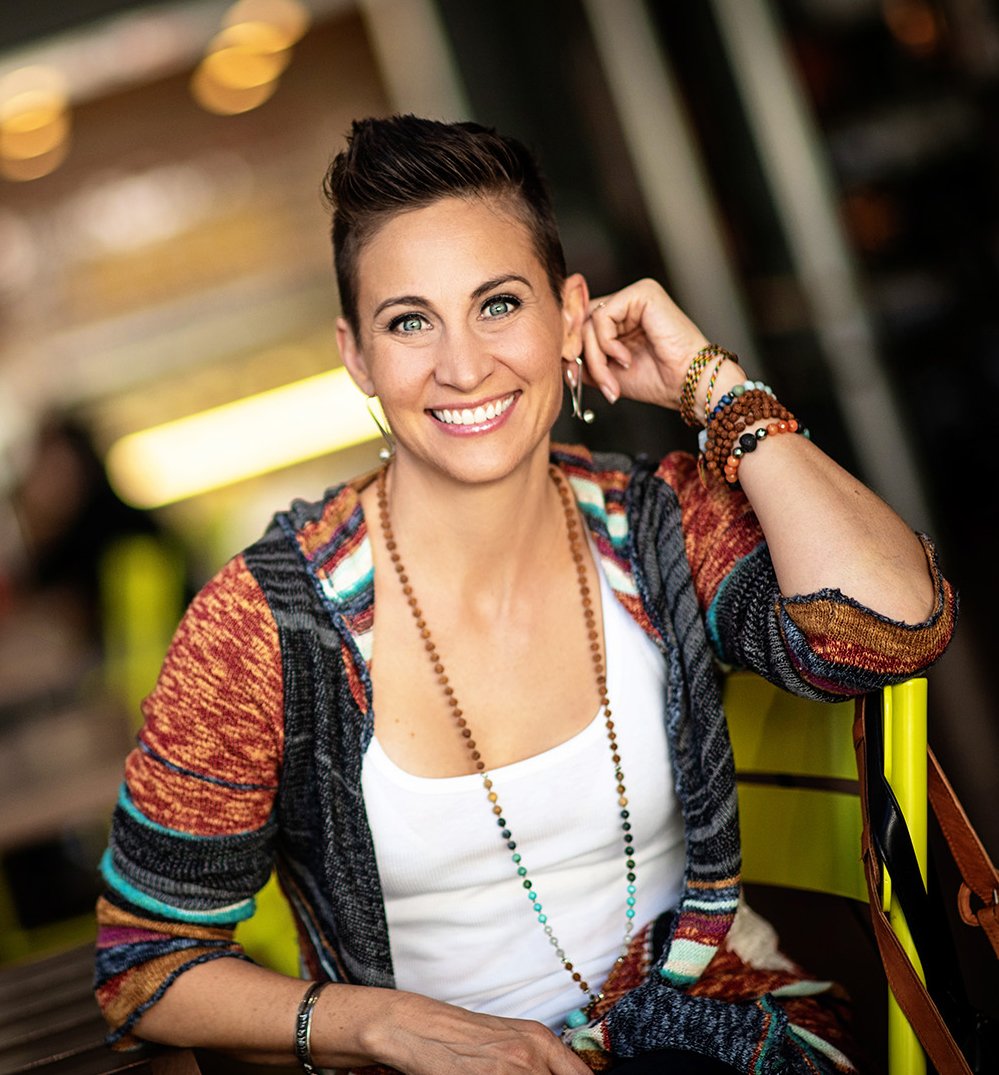Social Six —"Duty"
Lacking either trust in themselves (like the Sexual Six) or other people (like the Self-Preservation Six), Social Sixes deal with the passion of fear and its related anxiety by relying on abstract reason or a specific ideology as an impersonal frame of reference. They find safety by relying on authorities, or on the "authority of reason, rules, and rational thinking.
The name given to this type by Ichazo is "Duty," which doesn't mean they "do their duty" (though they often do) as much as it means that they focus on "what their duty is." In coping with anxiety, the Social Six consults the guidelines associated with whatever authority they adhere to. They focus on knowing what the benchmark is and on obeying the rules of the game. They feel a need to know all the points of reference-what the party line is, who the good guys are, and who the bad guys are.
This quick reference guide captures the various aspects of each Enneagram Type including attributes, basic fears, desires, passions, virtues, fixations, defense mechanisms, and more!
Consciously or unconsciously, Social Sixes fear the disapproval of authorities and believe the way to be safe is to do the right thing as determined by an authority. And knowing what the right thing is means having clear rules that tell you how you should think and act. This orientation has the effect of developing the philosophical mind, because when you don't know how you should live-when you don't trust your intuition or your human sense of life to guide you-you have to become very intellectual. But this sense of duty also becomes a way to structure your life: someone gives you the rules, and you follow them.
Archetypally, the guidelines of whatever system a Social Six follows become a kind of replacement authority for the first authority-the parent, usually the father. While they may have rebelled against or been disappointed by their actual father, they look for a good authority in life as a way of finding security. Total submission and obedience to authority (and the rules associated with authority) helps them feel safe in the world. Naranjo points out, however, that choosing the wrong authority can be a problem for Social Sixes. "Instead of believing in the person who is right, they tend to believe in people who speak as if they were right, and who have the special gift of making themselves believed."
The Social Six typically represents a mixture of phobic and counterphobic expressions. This Six is a cooler character that the Self-Preservation Six. They find safety in being precise about how one should conduct oneself. They have a lot of anticipatory anxiety-they believe that everything will go wrong, so they rely on precision in following the rules as a way of coping with their anxiety. They feel most secure when they have clear minds and when things are in clear categories. Social Sixes are good Boy Scouts and Girl Scouts, dedicated to adhering to the group code and to a competent way of doing things based on that code.
The Social Six is a stronger character that the Self-Preservation Six, and this greater strength has to do with having more certainty than uncertainty. The Self-Preservation Six is an insecure person-they hesitate because they are not sure. The Social Six is someone who, in defense against the insecurity associated with not being sure, becomes too sure. They can-in the extreme-become "true believers" or fanatics. In the counterphobic Sexual Six, fear is turned into its opposite when the person adopts a stance of strength, but in the Social Six, "it is not fear that is turned into an opposite, but doubting."
The Social Six can also be very idealistic, structuring life through the adherence to high ideals. This is a character who holds tight to ideologies and a particular view of things as a way of feeling safe.
In contrast to the Self-Preservation Six, who gets stuck in ambivalence and can't make decisions, Social Sixes have an intolerance of ambiguity. They fear ambivalence and have little tolerance of uncertainty, because to them, uncertainty equals anxiety. As a result, they have a love of precision and see things more in terms of black and white than gray.
The Social Six is also a bit of a legalistic character; they have the mid of a lawgiver, and they like clear categories. Culturally, the Germans provide a good example of this archetype in that they like precision, order, and efficiency. Social Sixes have a strong sense of duty, they idealize authority, and they display a generalized dutifulness-an obedience to law, a devotion to fulfilling responsibilities as defined by external authority, a tendency to follow rules and to value documents and institutions, and a kind of rigidity and organization.
Social Sixes both fear making a mistake and long for certainties: a person with the subtype "wants to be talked to in a certain manner so that he or she may feel that the speaker knows, the speaker is right." They have a highly intellectual orientation, and their patterns of thinking can take the form of diagrams and flowcharts.
These Sixes are not very spontaneous; they live a more scripted life. As a result of being so much in their heads, they don't have very much contact with the instincts or their intuition. They tend to be shy and have little ability to socialize or to be moved or touched by something or someone. They may feel uncomfortable with experience related to unrestricted animal instincts or sexuality.
Social Sixes can tend to be controlling, impatient, judgmental, and self-critical. They demand a lot of themselves, and may insist on everything being done according to their codes and viewpoints. Others may perceive Social Sixes as cold or cool, as they can be very formal in the things they do.
Individuals with this subtype can have many characteristics in common with Type Ones, especially Self-Preservation Ones. Like Ones, they follow rules and tend to be controlled, critical, hardworking, punctual, precise, and responsible. However, while Ones are guided in a confident way by a sense of their own internal standards, Sixes' fear of making a mistake has more to do with getting in trouble with an external authority.
The love of precision and the efficiency of this Social Six subtype can also make them resemble Type Threes; however, the main motivation of this Six is to avoid anxiety by finding a sense of authority in reference points, not to accomplish goals and look good through efficiency.
A.H., a Social Six, speaks:
Some of my happiest moments as an adult have come after aligning myself with a system for how to live. When I was thirty, I discovered the work of Ken Wilber and found myself ease into a sense of clarity and peace because everything finally made sense. All my confusion about how different things related to each other suddenly dissolved. Here was a system I could trust. The same thing happened a few years ago, when I was shocked to find that my body fat percentage was nearly 25 percent. I immediately researched how to improve this. Once I found a system of eating and exercising that seemed trustworthy, I latched on to it. In both cases, it wasn't just that I had rules to follow; it was that the rules actually brought me in touch with a sense of purpose and comfort.
Now, the other side of the story is that I have an internal set of rules about how to stay physically safe, and I get upset when other people don't follow them. I can't tell you how many times I've said to my wife, "Watch his head!" while she carried my infant son through a doorway. In such situations, my body's threat response goes into high gear. Not only do I perceive danger-I can see that someone isn't following the rules on how to avoid it. That's when the cool guy can get mean and even cold.
Specific Work For The Social Six on the Path from Vice to Virtue
Social Sixes can travel the path from fear to courage by forgetting about what their duty is or isn't and connecting in a more purposeful way with their own instincts, their own intuition, and with life in general. If you are a Social Six, recognize that living from the intellect only gets you so far; your head is not necessarily the right organ to tell you how to live fully. Allow yourself to get a little crazy and forget all the rules and reference points. You can grow toward courage more if you can learn to let go of your system of thinking, your ideas about what your duty is, and your clear categories, and develop the ability to become your own authority. Explore the ways in which you may be making an ideology-or even "rationality" itself-and impersonal authority that you rely on as a source of support or a parental surrogate, and take the risk of owning your own power instead. Realize and become more aware of how you may be compensating for a father figure who let you down, so you don't need to draw so heavily on whatever your are using as a guiding authority in your life. Don't be guided so much by your intellectual maps; act more from instinct. Have the courage to pursue pleasure rather than duty, knowing that connecting to your own power and satisfaction on all levels is the royal road to manifesting your higher capacities.
Sourced with permission from The Complete Enneagram by Beatrice Chestnut.
Type 1 Type 2 Type 3 Type 4 Type 5 Type 6 Type 7 Type 8 Type 9
Ashlie Woods
Director of Business Division & Lead Coach at Sourced
Ashlie is a transformational coach, retreat leader, dance lover and Enneagram enthusiast. She is passionate about facilitating experiences that liberate and empower people to live their fullest, more creative and self-expressed lives. She believes there is a life that wants to be lived through you and a purpose only you can fulfill.
She spent 6 years designing and delivering corporate training programs focused on leadership development and company culture before making the bold leap to start her own retreat-based business.
Ashlie now supports heart-centered business owners (coaches, consultants, creatives, healers) to market, sell and deliver their transformational work in the world using their unique magical gifts.




